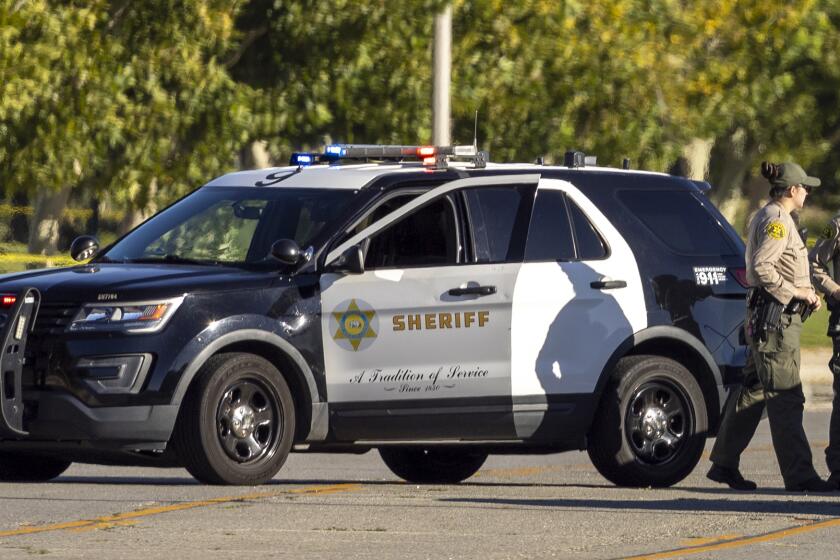70% Fewer Corneas Now Harvested
- Share via
The number of corneas harvested from bodies at the Los Angeles County coroner’s office dropped nearly 70% last month under a new policy that requires death investigators to contact family members for permission before removing the eye tissue, statistics released Tuesday show.
The Doheny Eye & Tissue Transplant Bank collected 19 corneas from homicide, suicide and accident victims scheduled for autopsies at the coroner’s office during November, according to a statement issued through the University of Southern California Medical School late Tuesday.
That compares with an average harvest of 61 corneas a month by the eye bank before the coroner’s office changed its policy and began contacting relatives first--as it does for other body tissues that are recovered for donation.
Officials at the nonprofit eye bank declined to comment about the decrease.
But a spokeswoman for the USC Medical School, with which Doheny is affiliated through the school’s department of ophthalmology, said that the “overall supply of corneas is down.”
“The corneas just aren’t available for [patients] immediately,” said Brenda Maceo, director of USC’s health sciences public relations. Waiting lists for cornea transplants, which had been a thing of the past, have returned, she added.
The coroner’s office put its new policy into effect Nov. 3, one day after The Times revealed that the county department had collected substantial sums of money from Doheny in exchange for thousands of corneas taken from cadavers without the knowledge or approval of family members.
The practice had gone on for years under the authority of a little-known 1984 state law aimed at increasing the supply to transplant recipients of the dime-sized domes that cover the colored iris of the eye. It exempted county coroners from the obligation of contacting family members before recovering the highly perishable corneas, which can disintegrate in 12 to 24 hours.
But critics said the coroner’s office has used the law--long abandoned as questionable by other medical examiners around the state--to avoid approaching families altogether, even those within easy reach by telephone.
They also said the coroner’s office had become a virtual cornea mill for Doheny, which paid the county $215 per pair of corneas and resold them at a 1,400% markup to transplant institutions.
Although Coroner Director Anthony T. Hernandez said he continued to believe in the humanitarian purpose behind the law, he required all death investigators to seek out family members for permission to remove corneas. Meanwhile, fallout over the cornea controversy has reached across the country, where 20 other states have so-called medical examiner laws similar to California’s.
More to Read
Sign up for Essential California
The most important California stories and recommendations in your inbox every morning.
You may occasionally receive promotional content from the Los Angeles Times.













